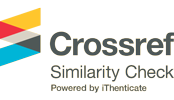The Dark Side of state recognizance. ¿bureaucratization of claims or epistemic violence?
DOI:
https://doi.org/10.35305/ac.v11i11.364Keywords:
Bureaucratization - Epistemic Violence - Institutional Violence - Native PeopleAbstract
The Argentinean State has been redefining his relationship with indigenous people through various actions for recognition of their rights, and specific claims; developing various public policies, programs and projects through specific institutions and agencies that have this “renewed” relationship as product of a genuine appreciation for multiculturalism and ethnic identities predate the state. In contrast, we observed that the specific forms of implementation of these other logics underlying evidence, demonstrating the profound contradiction in the conception of the relationship between the state and the indigenous people. This article analyzes the ways that the state uses to recognize the ethnic processes can become determined by epistemic and institutional violence. To do this, we focus on application, registration and formalization procedures that Indigenous People must perform to achieve recognition of their communities and organizations. In that sense, we are interested to denature the following purposes of discussing the alleged innocence or neutrality of forms and formal requirements for state recognition, to demonstrate how these, in both tools and institutions that operate them, respond to underlying ideology far from fully recognize and respect the diversity and particularities of Indigenous People acts imposing criteria, categories and forms of identity arising from the logic of the stateDownloads
Downloads
Published
How to Cite
Issue
Section
License
Avances del CESOR ratifies the Open Access model in which the contents of scientific publications are fully available for free on the Internet, without temporary embargoes, and whose publishing costs are not transferred to the authors. This policy aims to break the economic barriers that generate inequities in access to information, and publication of research results.
Authors retain the copyrights of their papers and grant the journal right of first publication with the work simultaneously licensed under a Creative Commons that allows others to share the work with an acknowledgement of the work's authorship and initial publication in this journal.



















































